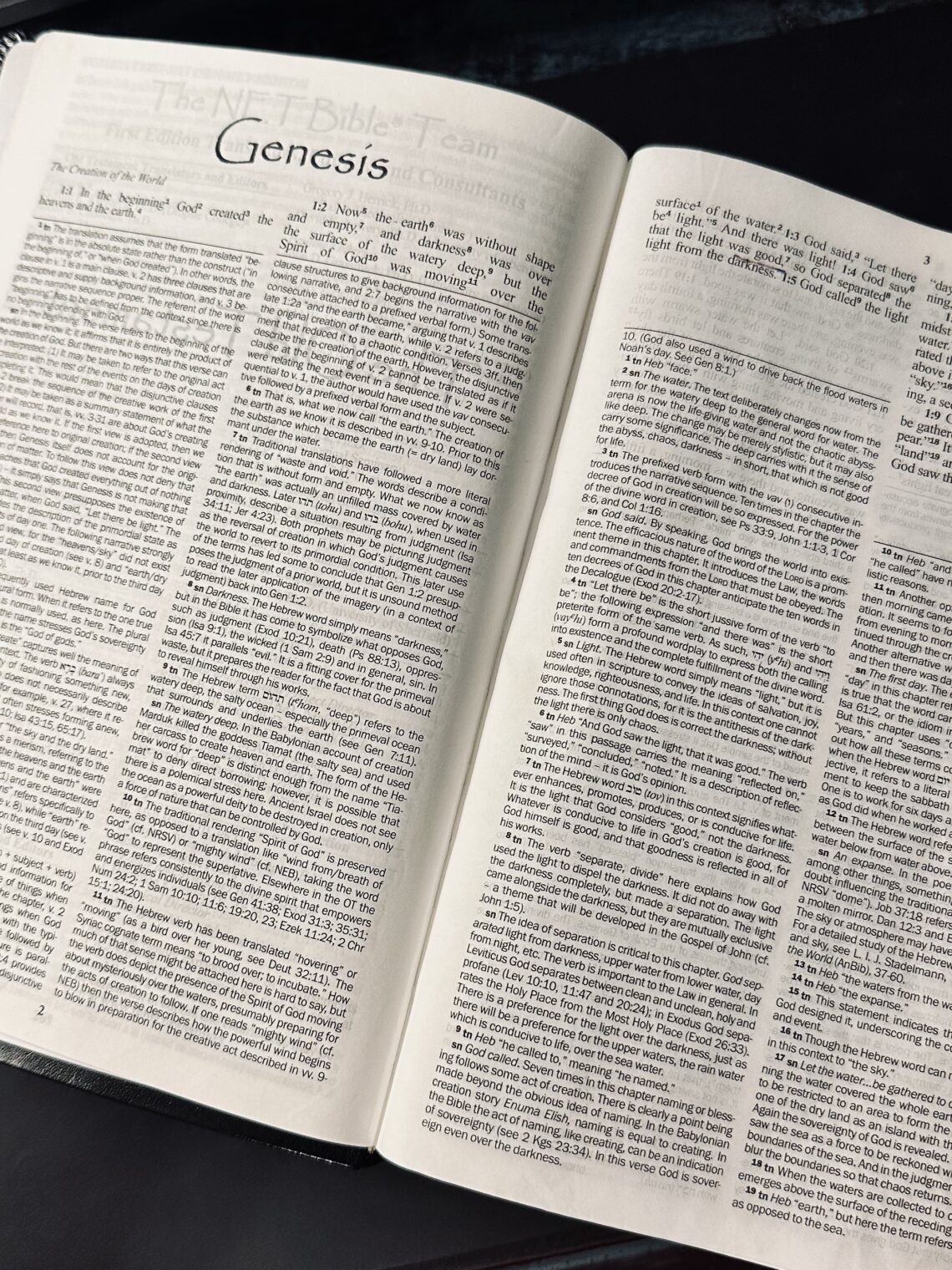
Refuting the Lie: Woman is Defective in Her Nature
I’ve lost count of how many times I’ve wanted to climb the highest summit and roar like a lion. Roaring and roaring, until the rising sun closes itself up like pocket doors and the tree branches mimic a weeping willow. Up until the mid-twentieth century, the church held the view that woman is defective in her nature.[1] For too long, I believed the lie, that by God’s design women are less valuable than men (Read about it here). The Lord first called me to minister to women three decades ago. Since then, I’ve heard story after heartbreaking story of the trickle-down effect—the harm and havoc reaped—from this lie. Filled to overflowing, I’ve roared with soaked sorrow over what my sisters, especially my sisters of color, have endured. Once and for all, may we refute the lie that woman is defective in her nature.
Scriptural Accounts of Women’s Abuse
Yes, evil reigns and seeks to cut women to the core (Gen 3:15). Yet, century after century, women have been treated unjustly by fellow believers. So many, too many women have been dismissed, demeaned, degraded, abused, mutilated, or worse. Consider the evidence in the Scriptural account: Sarah’s husband betrayed her for his self-protection; Hagar was used sexually and discarded; Princess Tamar was raped by her half-brother and rejected by her family; Abigail’s husband abused her; Hannah was demeaned because of her barrenness. To be clear, the Bible doesn’t justify the abuse of women. At the same time, the victim’s harm was rarely acknowledged or rectified. Even Jesus’s male disciples dismissed the women disciple’s eye-witness testimony that Christ had risen from his grave (Luke 24:11).
Biblical Interpretations Maligning Women
Some Bible interpreters have falsely accused women. Bathsheba has been labeled an adulterer when the biblical text states that the King instructed his men to go to her, take her, and bring her to his bedroom—Bathsheba had no agency and the King impregnated her. The woman who evangelized her entire village after Jesus revealed to her that he was the Messiah—the Samaritan woman—has been labeled immoral. Yet, only husbands had the agency to divorce their wives, and that she was possibly a concubine (lawful at that time) may indicate she had few options to avoid dying of starvation. An elder, in my former church, taught that believers should emulate Daniel, not Esther. In his reading of the Holy Word, he thought Esther capitulated to the culture. He didn’t see a young girl abducted from her home and forced into a king’s harem to be groomed for his bed. He also missed that God chose to save the people of Israel from annihilation through Esther’s faith and courageous actions.
Affirming Men
Before we go further, hear me, I don’t hate men. I’ve been married for forty-plus years to a good man. Together we’ve raised two incredible sons, men who love the Lord and treat their wives with tender-loving care. A number of my brothers-in-the-faith have affirmed me and my ministry to equip believers to develop their theology of women. What I abhor is the devaluing of women and their gifts.
Reconciling Reality
How may we reconcile women’s devaluing in the very body entrusted with the truth that each created person is the Holy One’s workmanship, created to do his good works (Eph 2:10)? I’ll share with you where I’ve landed. God knew women would be underestimated and oppressed. He foresaw that some would twist Paul’s writing about women in unrecognizable ways. And, he understood the human heart’s propensity to hoard power and authority. Yet, the Holy Spirit has never stopped infilling women and giving them spiritual gifts (1 Cor 12:11). And, the Lord has continually called and empowered women to accomplish his kingdom work.
Genesis 1 and the Nature of Woman
In my previous blog post, I explored evidence that refutes the lie that by God’s design woman is inferior to man. In this post, let’s briefly delve into the nature of woman. The first creation account is the indispensable starting point for defining “woman,” her nature and purpose.
Genesis 1 describes the creation of the cosmos. Verse 1 says, “In the beginning God created the heavens and the earth.” In verses 1–25, God transforms the cosmos from day one to day five by imposing order. Carmen Joy Imes summarizes creation in her book Being God’s Image: Why Creation Still Matters, “The first three days depict God’s ordering of habitable space, while the last three depict God’s creation of residents to dwell in those spaces…God takes the ‘formless and empty’ world and gives it ‘form and filling.’”[2] As the crown of creation, God “created humankind in his own image, male and female he created them.” Seeing all that he had made, God declared his creation very good.
Now let’s look closely at verses 26 through verse 28 in the NET Bible:
Then God said, “Let us make humankind in our image, after our likeness, so that they may rule over the fish of the sea and the birds in the air, over the cattle, and over all the earth, and over all the creatures that move on the earth.” God created humankind in his own image, in the image of God he created them; male and female he created them. God blessed them and said to them, “Be fruitful and multiply! Fill the earth and subdue it! Rule over the fish of the sea and the birds of the air and every creature that moves on the ground [emphasis mine].”
Twice in these verses, God speaks of creating humankind in his image. Notice the use of the plural “our” in verse 26, “our image” and “our likeness.” God the Father, the Son, and the Holy Spirit—three persons in one—created humankind in their image, after their likeness. Only after the Lord created the male and female, did he declare all creation “very good!”
Created in the Image of God
Let’s briefly unpack what it means to be created in the image of God.
- To embody God’s qualities; finite people are imbued with innate dignity, reflecting the infinite, yet personal God.
- To function as a symbol of the divine presence.
- To be entrusted to act as God’s representatives.
To “image” is to contain the “essence” of something else. Like a shadow of sorts, the image is a representative form purposed to imitate the original. The term “likeness” is connected to substance, expressing a resemblance at some level. We derive our identity from God; both male and female are similar to him. Remember, God is not male, he is spirit. Every person, regardless of their sex, race, ethnicity, age, marital status, or socioeconomic background, has been created in the image of God. Theologian Raymond C. Ortlund, Jr. writes, “Man was created as royalty in God’s world, male and female alike bearing the divine glory equally.”[3]
Humankind’s Purpose
The Creator also gave humankind a purpose or vocation. In verses 26 through 28, God issues his image-bearers three commands: “Rule over” (vv. 26, 28); “be fruitful and multiply. Fill the earth” (v. 28); and “subdue the earth” (v. 28).
Twice the male and female receive instructions “to rule over” all creation—the fish, birds, cattle, all the earth, and every creature that moves on the ground (vv. 26, 28). God gave these commands to both the female and the male. Absent from the first creation story is any hint of intent for the female to rule exclusively, or for the male to rule over the female. The woman was created from the side of the man (Gen 2), to rule with him in a side-by-side partnership.
The Creation Mandate
Often called the “creation mandate,” verses 26–28 describe God’s original design to entrust humankind with the responsibility to be fruitful and to exercise authority over all creation. Some scholars also describe this passage as the “cultural mandate,” a broader description linking Genesis 1:18 with Matthew 28:18–20.
Matthew 28:18–20 says,
Then Jesus came up and said to them [his disciples], “All authority in heaven and on earth has been given to me. Therefore, go and make disciples of all nations, baptizing them in the name of the Father and the Son and the Holy Spirit, teaching them to obey everything I have commanded you. And remember, I am with you always, to the end of the age.”
In this passage, Jesus commissions his followers to be fruitful in disciple-making. Genesis 1:18 and Matthew 28:18–20 connect the physical fruitfulness of multiplying descendants with the spiritual fruitfulness of multiplying disciples of Christ. The responsibility for the fruitfulness of multiplication rests upon all who believe in Jesus’s name.
Women Who Fulfill the Great Commission
Women have contributed fruitfully to fulfilling the Great Commission (Matt 26:18–20). Here’s a small sampling of examples. Mary Magdalene, Mary the mother of James the Younger, Mary the mother of Jesus, Salome, and other unnamed women who traveled and evangelized with Jesus from Galilee to Jerusalem (Luke 8:2–3). Priscilla accompanied Paul on missionary journeys (Acts 18:18, 26; Rom 16:3–4). In the second through the fourth century, many female martyrs chose death rather than compromise their faith. In the Middle Ages, monastic women, like Catherine of Siena, nursed the sick and evangelized prisoners. Chinese Bible women, such as Dora Yu, built the Chinese church. Women, such as Lottie Moon and Lilias Trotter, built multiple foreign mission agencies. In the 19th century, African-American women, such as Jarena Lee and Julia A. J. Foote, served as itinerant preachers and evangelists. Missionary wives, including my Aunt Marlene and Aunt Winnie, served far from their homes as unsung and unpaid evangelists. And, single women have worked as Bible translators across the globe. A chief operations officer at Wycliffe Bible Translators said, “If it hadn’t been for single women over the 70-year history of Wycliffe, half of the translations wouldn’t have been completed.”[4]
Conclusion
Amy Peeler begins her book titled Women and the Gender of God with this sentence, “God values women.” From its’ opening verses, the Scriptures testify to this truth. God chose to fashion the woman (and man) in his image. Therefore, the nature and purpose of woman cannot be inferior because no inferiority resides in the Holy One. The oppression of women and the unbiblical restriction of their gifts minimizes the dignity God bestows on his daughters. Church, repent. Be who God called you to be—image-bearers created to love God and honor one another.
[1] A view held by both the Protestant and Catholic church. William Witt, Icons of Christ; A Biblical and Systematic Theology of Women’s Ordination, (Waco, Texas: Baylor University Press, 2020), 29.
[2] Carmen Joy Imes, Being God’s Image: Why Creation Still Matters, (Downers Grove, IL: InterVarsity Press, 2023), 14.
[3] Ray C. Ortlund, Jr., Recovering Biblical Manhood and Womanhood, ed. John Piper and Wayne Grudem, 1st ed. (Wheaton, IL: Crossway Books, 1991), 97.
[4] Kate Shellnutt, “How Single Women Became an Unstoppable Force in Bible Translation,” Christianity Today, April 12, 2017. https://www.christianitytoday.com/ct/2017/april-web-only/how-single-women-became-unstoppable



